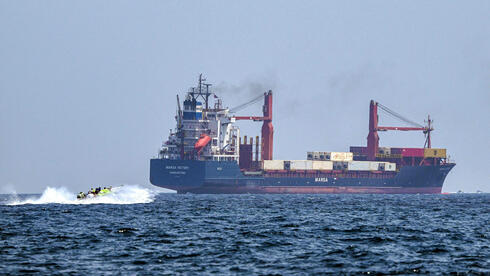
The Iranian military’s recent actions in the Persian Gulf have raised significant concerns in Washington. Last month, Iranian forces loaded naval mines onto vessels, a move perceived as a preparation to potentially blockade the Strait of Hormuz. This development follows a series of Israeli airstrikes on Iranian sites, according to two U.S. officials who spoke on the condition of anonymity due to the sensitivity of the intelligence involved.
The loading of these mines, which have not yet been deployed, suggests a serious consideration by Tehran to close one of the world’s most critical shipping lanes. Such an action would escalate current tensions and severely impact global commerce, as approximately 20% of the world’s oil and gas shipments pass through the strait.
Global Economic Implications
The potential closure of the Strait of Hormuz could have profound economic repercussions. Historically, any threat to this vital passage has led to spikes in global energy prices. However, despite the heightened tensions, global benchmark oil prices have decreased by over 10% since the U.S. conducted strikes on Iran’s nuclear facilities. This price drop is partly attributed to relief that the conflict did not result in significant disruptions to oil trade.
On June 22, following U.S. military actions targeting Iran’s nuclear program, Iran’s parliament supported a measure to block the strait. Although this decision was not binding, it underscored the potential for escalation. The ultimate decision rests with Iran’s Supreme National Security Council, as reported by Iran’s Press TV.
Strategic and Military Considerations
The strategic importance of the Strait of Hormuz cannot be overstated. It connects the Persian Gulf with the Gulf of Oman and the Arabian Sea, serving as a crucial conduit for oil exports from OPEC members such as Saudi Arabia, the United Arab Emirates, Kuwait, and Iraq, primarily to Asian markets. Qatar, a leading exporter of liquefied natural gas, also relies heavily on this route.
Iran, despite its threats, has historically refrained from closing the strait, partly due to its own reliance on the passage for crude exports. Nevertheless, Tehran has invested significantly in ensuring it has the capability to block the strait if deemed necessary. As of 2019, Iran maintained over 5,000 naval mines, which could be deployed rapidly using small, high-speed boats, according to the U.S. Defense Intelligence Agency.
U.S. Military Response and Regional Security
The U.S. Fifth Fleet, based in Bahrain, is tasked with safeguarding commerce in the region. Traditionally, the U.S. Navy has stationed four mine countermeasure vessels in Bahrain. However, these ships are being replaced by littoral combat ships, which also possess anti-mine capabilities. In anticipation of potential Iranian retaliation, all anti-mine ships were temporarily withdrawn from Bahrain prior to the U.S. strikes on Iran.
Iran’s immediate response was limited to a missile attack on a U.S. military base in Qatar. Nonetheless, U.S. officials have not ruled out further retaliatory measures by Iran.
Diplomatic and Political Reactions
When asked about Iran’s preparations, a White House official credited the President’s strategic initiatives, including Operation Midnight Hammer and the maximum pressure campaign, for maintaining open navigation in the Strait of Hormuz. The Pentagon and the Iranian mission at the United Nations did not immediately respond to requests for comment.
The two U.S. officials noted the possibility that Iran’s actions could be a strategic ruse to pressure Washington without intending to follow through on closing the strait. Alternatively, Iran’s military might be preparing for potential orders from its leadership.
“Thanks to the President’s brilliant execution of Operation Midnight Hammer, successful campaign against the Houthis, and maximum pressure campaign, the Strait of Hormuz remains open, freedom of navigation has been restored, and Iran has been significantly weakened,” a White House official stated.
The Strait of Hormuz remains a critical geopolitical flashpoint. As tensions continue to simmer, the international community watches closely, aware that any misstep could have far-reaching consequences for global security and economic stability.





